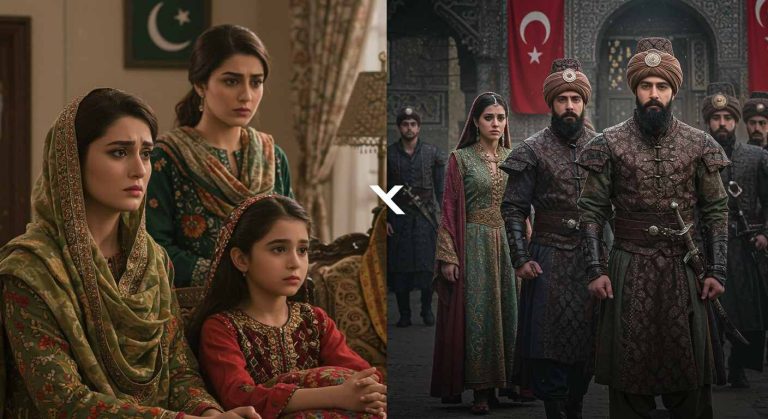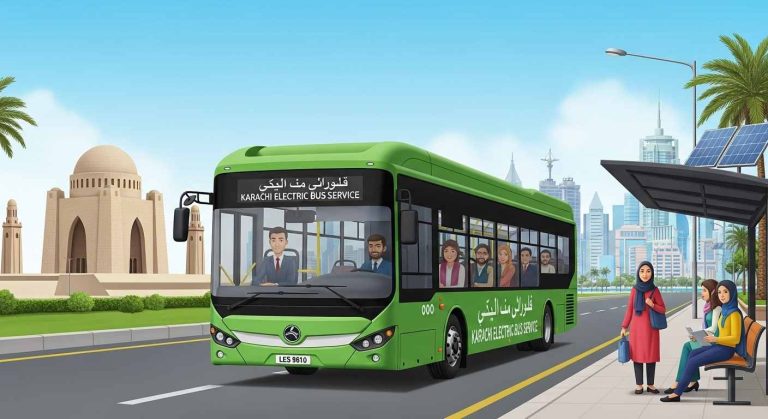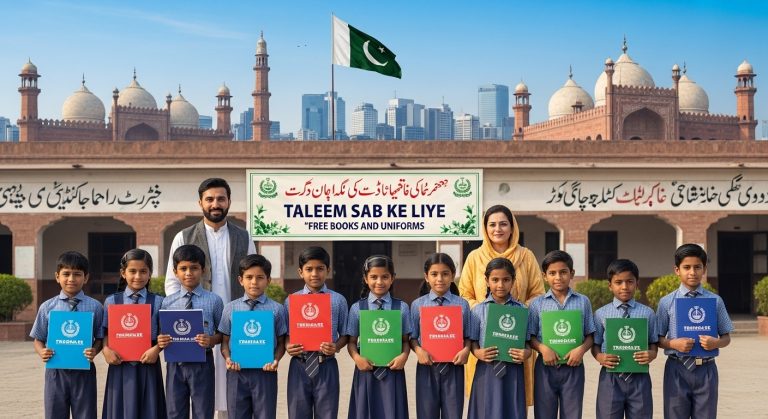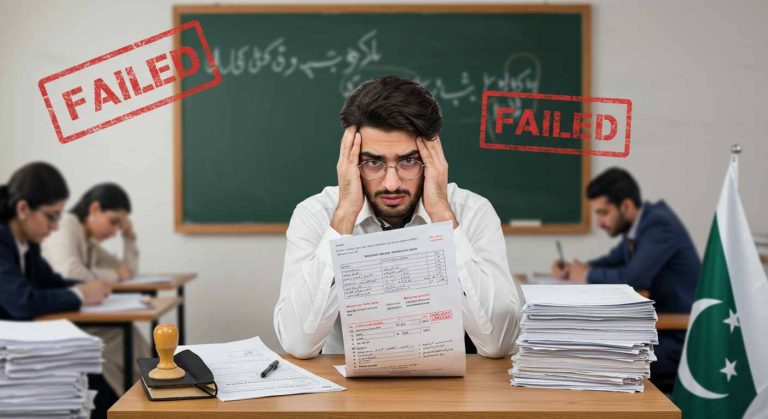Digital Awakening: How Social Media is Reshaping Political Narratives in Rural Pakistan
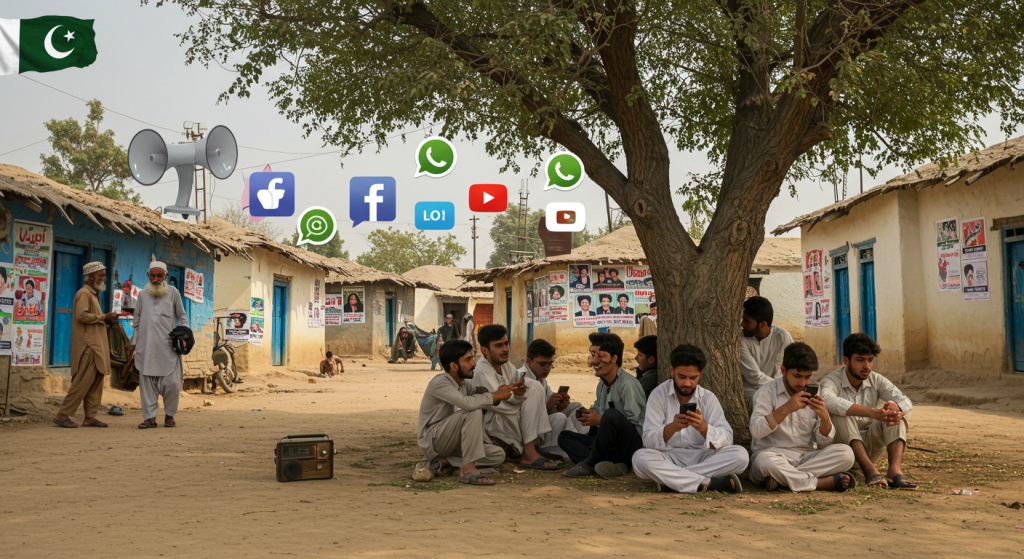
In the past, political discourse in rural Pakistan was shaped by feudal loyalties, village gatherings, and party rallies. Decisions were often influenced by the word of landlords, religious leaders, or tribal elders. But over the last decade—and especially in recent years—a new force has emerged that is dramatically altering this landscape: social media. With the rapid spread of smartphones and internet access even in the most remote corners of the country, social media platforms have begun to reshape how rural populations understand, engage with, and respond to politics.
From Radio to Facebook: A New Era of Information
Historically, rural communities relied on limited sources of information, such as state-run radio or hearsay from nearby towns. This often meant their political understanding was outdated or manipulated. But now, platforms like Facebook, WhatsApp, TikTok, and YouTube have become the primary windows into the world for millions of rural Pakistanis.
A farmer in interior Sindh or a student in a village of Southern Punjab can now watch political speeches, live debates, or investigative journalism with just a few taps. This easy access to alternative narratives has weakened the monopoly of traditional power brokers who previously controlled the flow of information.
Breaking Political Monopolies
Feudalism has long dominated political affiliations in rural Pakistan. Whole communities would vote for the same party or candidate due to family traditions or pressure from local elites. However, social media is chipping away at this system. Younger voters, in particular, are questioning the status quo, challenging hereditary politicians, and demanding real accountability.
Online exposure allows rural youth to learn about national issues, corruption, and development projects—or the lack thereof—in their regions. They can see what politicians promise and whether those promises are ever fulfilled. Viral videos of political leaders being confronted by villagers, or footage exposing poor governance, have become common.
This empowerment is leading to an increasingly issue-based voting mindset, where voters care more about performance and policy than party loyalty.
Political Campaigns Are Going Digital—Even in Villages
Political parties in Pakistan have realized the growing influence of rural digital users. In the 2018 and especially the 2024 elections, many parties invested heavily in social media campaigns, targeting not just urban voters but rural demographics as well.
Candidates now create video messages in local dialects, engage with voters through live sessions, and use WhatsApp groups to spread their manifestos. TikTok has become an unlikely but powerful platform for political outreach in villages, with influencers creating content in support of various parties or leaders.
Even local elections are not immune to digital influence. Union council candidates now hire social media teams to manage their online presence, share community work, and counter rival narratives.
Misinformation: The Double-Edged Sword
While the internet has democratized access to political information, it has also opened the floodgates for fake news, propaganda, and conspiracy theories. Rural areas, where digital literacy is often low, are particularly vulnerable.
WhatsApp forwards with false claims, edited videos, or out-of-context statements can quickly influence public opinion. In many cases, rumors spread online have led to community unrest, damaged reputations, and misguided voting decisions.
Without fact-checking tools or media education, distinguishing truth from fiction becomes difficult. This raises serious concerns about the manipulation of rural voters through digital platforms.
Youth Activism and Grassroots Movements
Despite the risks, social media has also enabled grassroots activism like never before. Rural youth are organizing protests, community clean-ups, educational workshops, and political awareness sessions—all coordinated through platforms like Facebook and WhatsApp.
Local injustices that would earlier go unnoticed are now filmed and shared widely, often catching the attention of higher authorities or national media. From exposing corrupt officials to highlighting environmental issues, rural voices are becoming louder and harder to ignore.
The recent rise of regional parties in areas like South Punjab and Balochistan is partially attributed to this online mobilization, where digital platforms offer an outlet for long-suppressed grievances.
Looking Ahead: Bridging the Digital Gap
For social media to become a truly transformative political tool in rural Pakistan, digital literacy must be prioritized. Training programs that teach rural users how to verify information, understand political bias, and engage constructively online are urgently needed.
Additionally, the government and civil society should work together to ensure better internet infrastructure in underserved areas so that all citizens—regardless of geography—can participate equally in national conversations.
Conclusion
The political awakening of rural Pakistan is no longer confined to physical spaces—it’s happening on screens, feeds, and live streams. Social media has created a platform where traditional power structures are being challenged, new voices are emerging, and political accountability is becoming a shared demand.
While risks like misinformation still loom large, the potential for positive change is undeniable. Rural Pakistan is no longer a silent spectator in the nation’s political narrative—it is becoming an active, informed participant, one post at a time.
